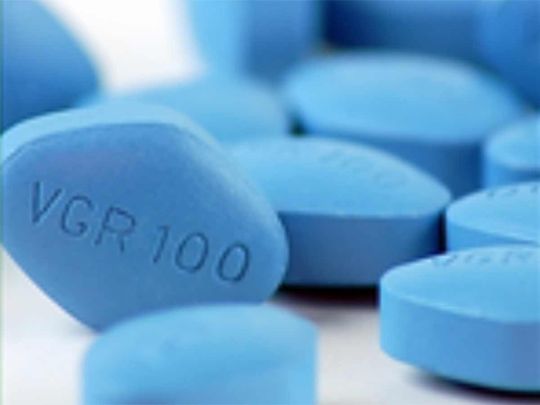
Toronto: Viagra, primarily known as an erectile dysfunction drug, may also help treat babies who run out of oxygen during pregnancy or at birth (neonatal encephalopathy), according to a study.
Options to treat oxygen-deprived newborns are limited. Therapeutic hypothermia is the only option used to prevent brain damage in such cases, but 29 per cent of babies who receive it still develop significant neurological sequelae.
A team of researchers at the Montreal Children's Hospital (MCH) in Canada, in a new clinical study showed that the administration of sildenafil, marketed under the brand name Viagra, could be a possible solution.
"This is the first proof-of-concept study to attempt to repair the brain damage caused by neonatal encephalopathy," said the team.
Using sildenafil in babies with such sequelae despite therapeutic hypothermia was found “feasible and safe”.
"Currently, when a baby has brain damage, there is little we can offer other than supportive care such as physiotherapy, occupational therapy or specialised care. If we had a drug that could repair the brain, it could change the future of these babies. It would be a victory for them, for their family and for society in general," said Pia Wintermark, neonatologist at the MCH.
Previous research in rat models showed that sildenafil can have neurorestorative properties in adult stroke patients. The team therefore thought of experimenting its effects on the brains of newborn babies.
Clinical study
The first phase of the clinical study involved 24 babies born at 36 weeks of gestation or more, with moderate to severe neonatal encephalopathy, who had been placed on therapeutic hypothermia and had brain damage despite treatment.
Of the group, eight received sildenafil starting on the second or third day of life, twice a day for seven days (total of 14 doses). A placebo was administered to three other babies.
In two of the eight babies, blood pressure slightly decreased after the first dose of sildenafil, but this did not recur thereafter, while no child in the placebo group died.
"The study therefore concludes that sildenafil is safe and well absorbed by babies who have developed brain damage due to neonatal encephalopathy and in whom therapeutic hypothermia has proved ineffective," the team said.
Further, in an exploratory analysis, five newborns treated with sildenafil showed partial healing of injury, fewer signs of brain volume loss and an increase in deep gray matter at 30 days of age. Nothing of the kind was noted in the placebo group.
Nine out of ten patients were also seen at 18 months for neurodevelopmental evaluation.
In the sildenafil group, one baby in six developed cerebral palsy, compared to three babies in three in the placebo group. Global developmental and fine motor delays were noted in two out of six children given the drug, while all children in the placebo group (3/3) suffered from them.
"All neonates enrolled in this study had significant brain damage at baseline. As such, it was expected that they would develop poorer neurodevelopmental outcomes compared with a general population of neonates with neonatal encephalopathy treated with therapeutic hypothermia," Wintermark said.
"Sildenafil is inexpensive and easy to administer. If it holds its promise in the next phases of the study, it could change the lives of babies suffering from neonatal encephalopathy all over the world," the researcher said.











